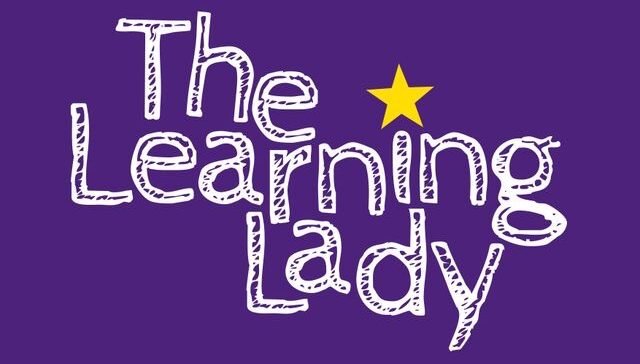The most common way to spell the sound OR is with an O and R. This Is usually taught in Reception class, and it’s most often found in the middle of words. Words like fork, born short, thorn, short, and even longer words like sport and storm.
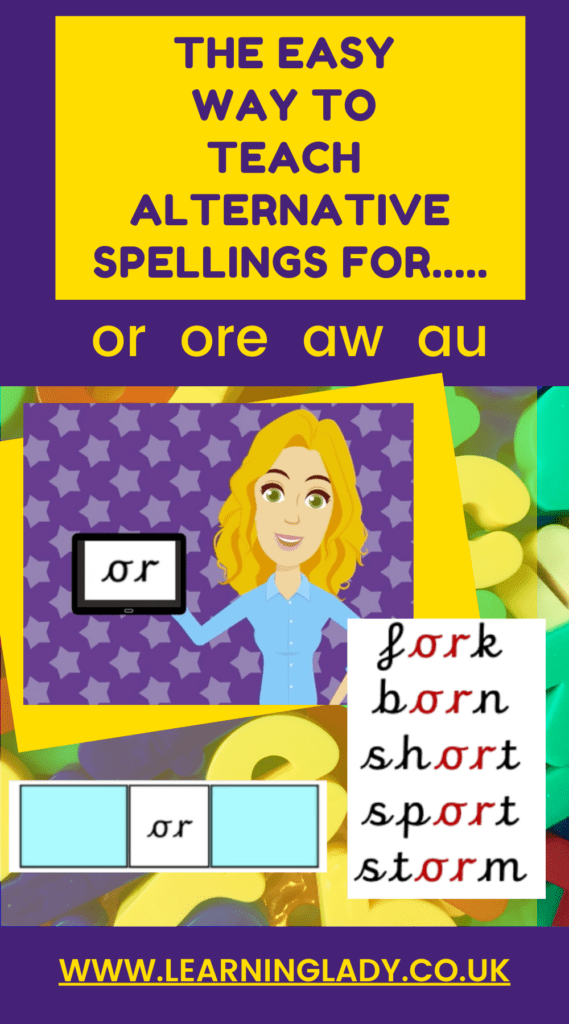
The next most obvious spelling alternative for the OR sound or phoneme is ORE. This mostly makes the OR sound at the end of words. Words like more and core, and even longer words like snore, store and before.

Exceptions to avoid at this stage include the word ‘for‘, which disproves the rule, and the number ‘four,’ which has a completely random spelling pattern. Words like stored, where the word has been turned into the past tense, also disproves this rule, and is best avoided to begin with.

Another alternative spelling which makes the OR sound or phoneme, comes at, or near, the beginning of words. The letters AU together make the OR sound in words like August autumn, author, automatic, launch and haunt.
The word pause is a good one to avoid here because the SE make a Z sound, which probably won’t have been taught just yet.
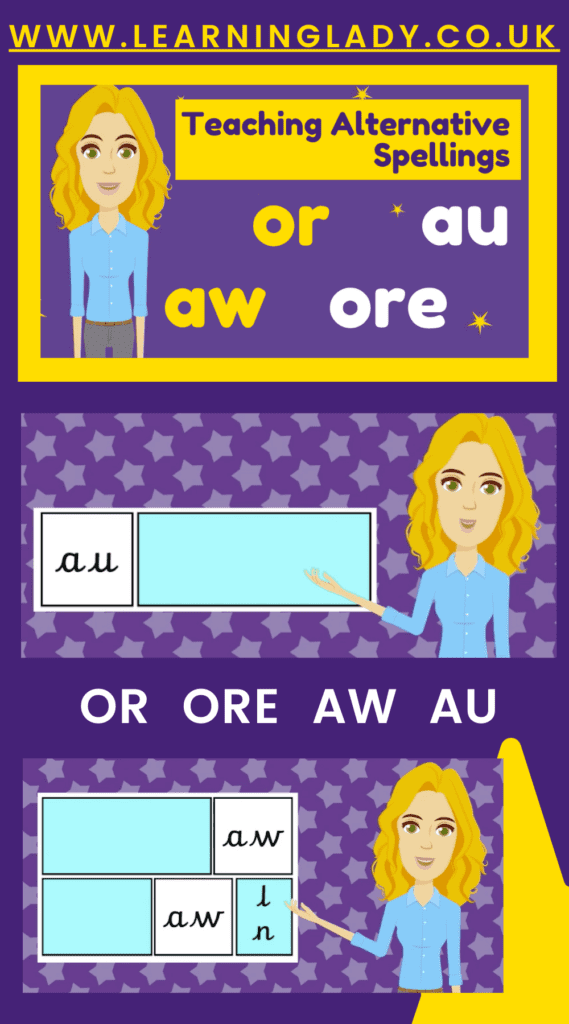
The final way we spell the sound or phoneme OR is with an AW. This spelling is mostly used at the end of words, or in the middle of words, ending in l or n. Some words, including the AW making the OR sound include paw, saw, draw, straw, yawn, lawn and crawl.
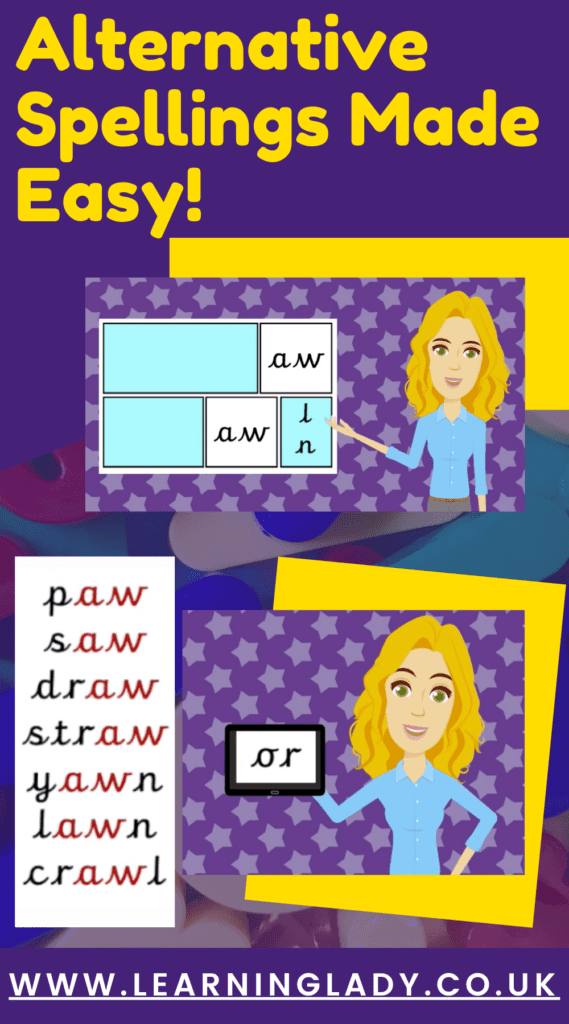
An exception to avoid at this early stage is an AW making the OR sound at the beginning of awful, because this disproves the rule.
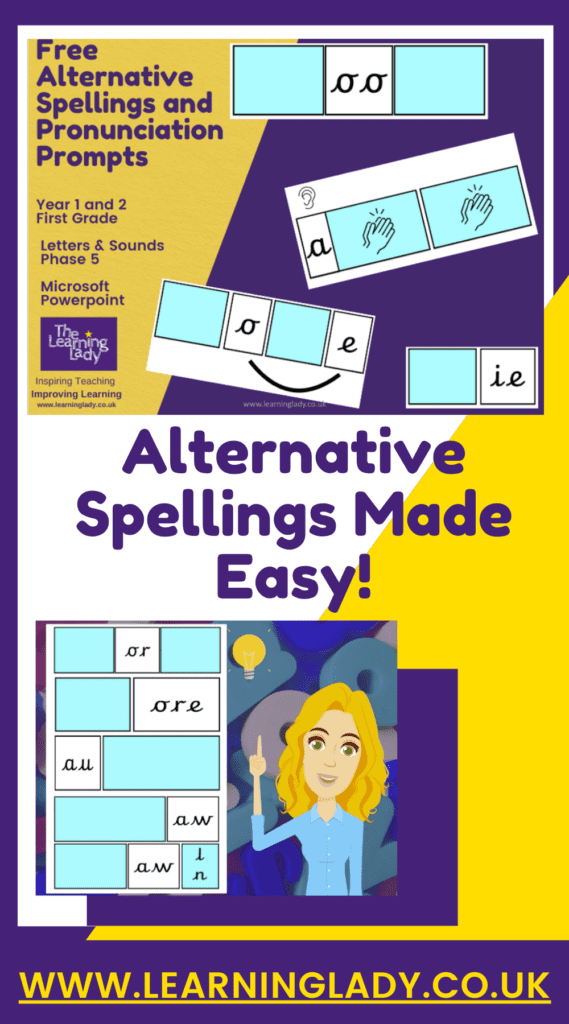
Learning Lady Top Tip
Use a variety of longer and shorter words to explain these rules, particularly including words with adjacent consonants. These are also sometimes called blends. They are so important to include because children often struggle to hear these separate sounds, so they need as much practise as they possibly can get!
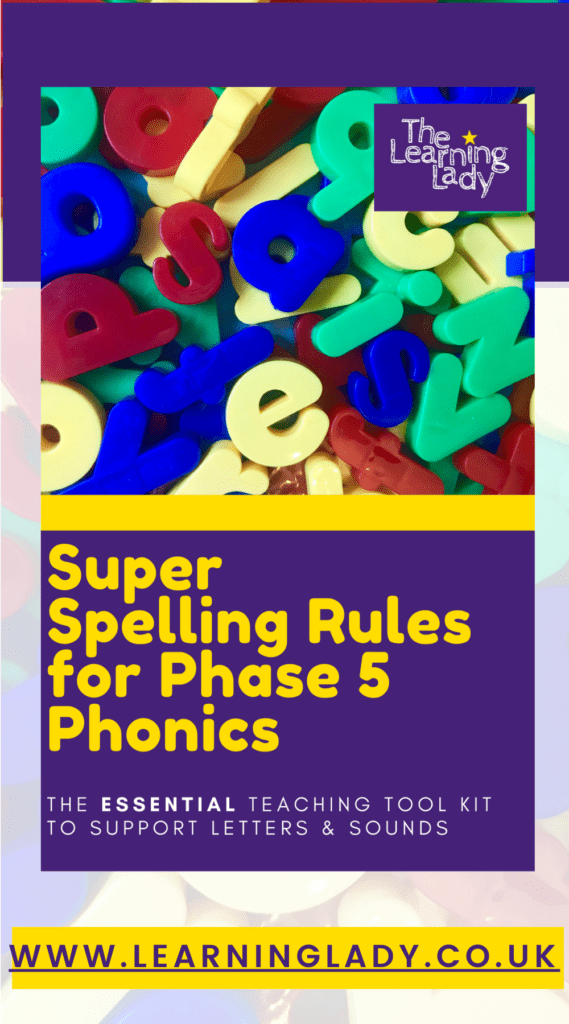
For all of the spelling rules and alternative pronunciations of sounds you’ll need to teach Letters and Sounds Phase 5 SPECTACULARLY WELL, Download my FREE PDF Super Spelling Rules guide now. It includes:
Easy, plain English, explanations of all of the rules you’ll need
Lists of words which prove each rule
Exceptions to avoid
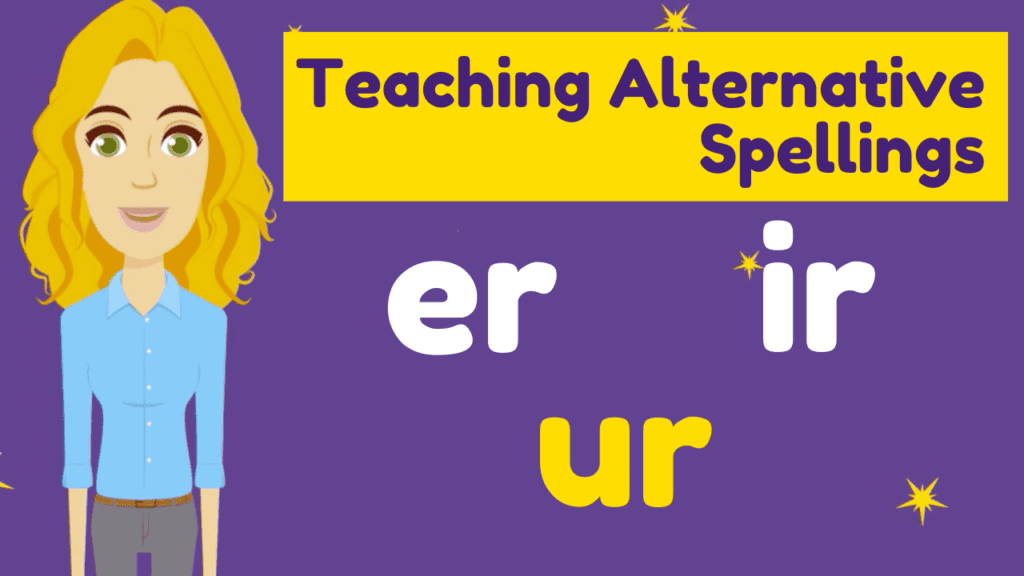
Don’t forget there are more spelling rules and alternative pronunciations to master when you’re explaining Phase 5 Phonics.
Check out these rules to teach the most common spelling choices in Phase 5 SPECTACULARLY WELL!
Alternative spellings and rules to teach the AI sound
Spelling alternatives for the EA phonics sound Phase 5
Alternative spellings for IGH phonics in Phase 5
Alternative spellings for IR words in phonics Phase 5
